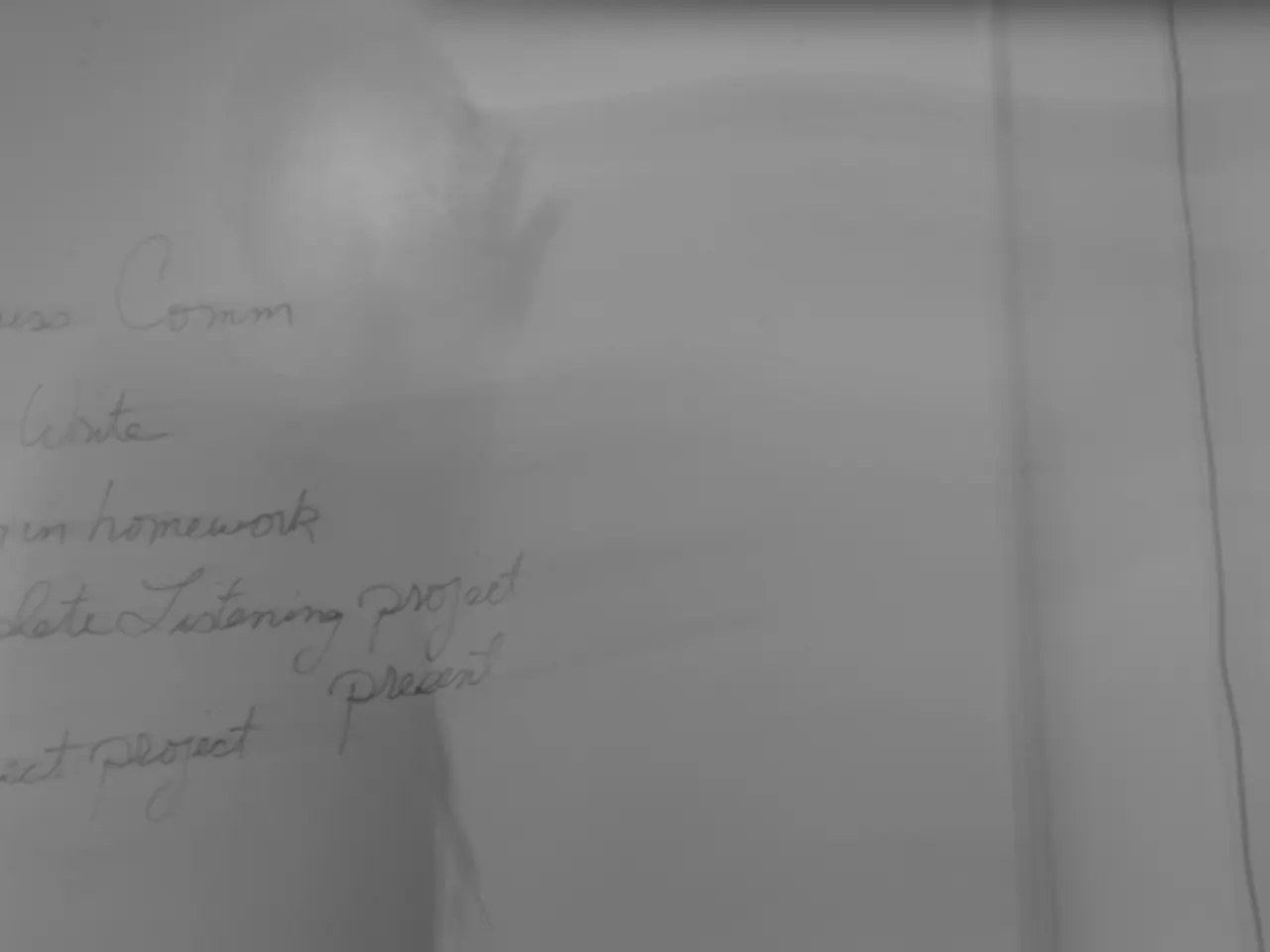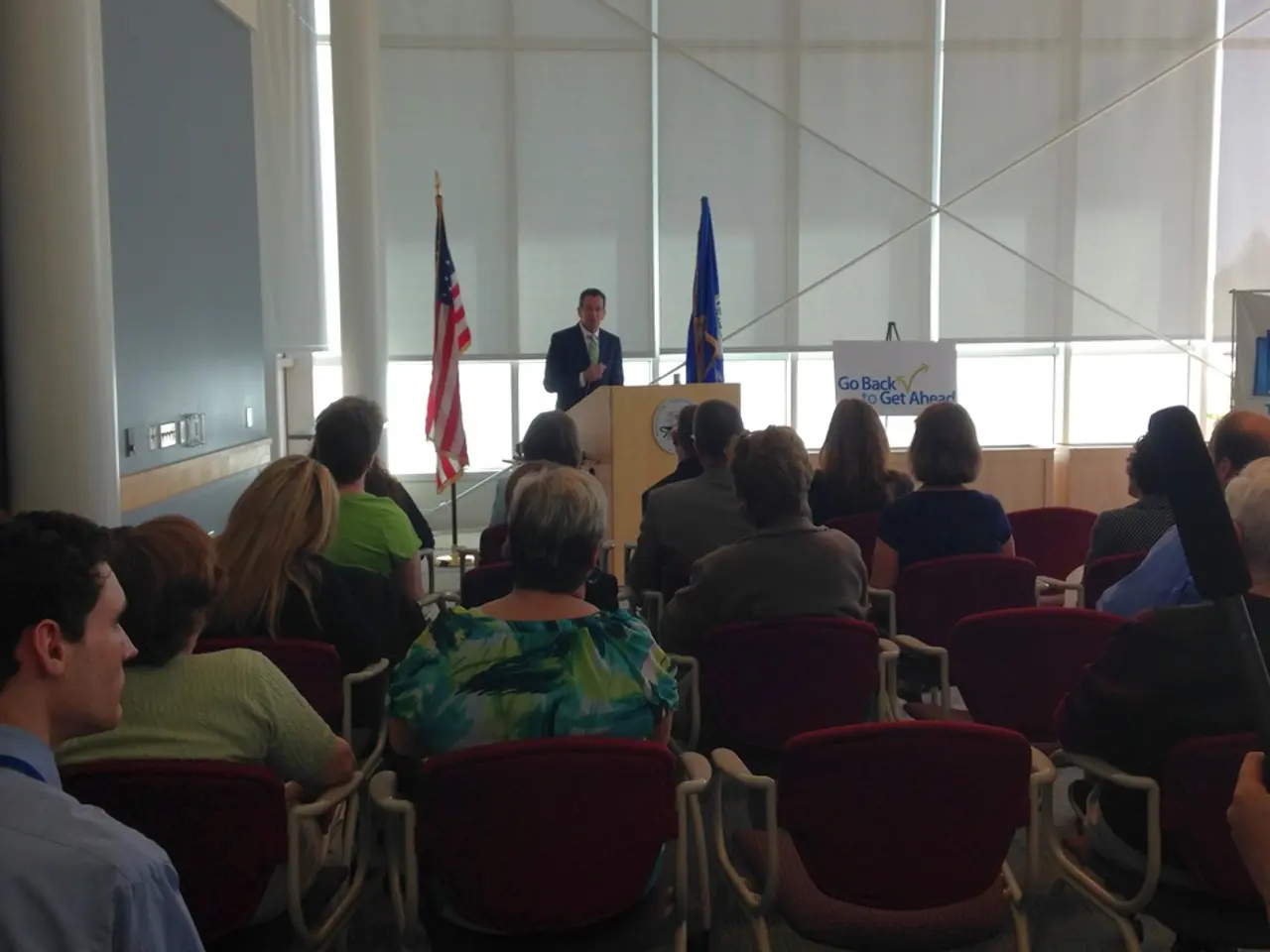Political Deceptions Disrupting Electoral Systems
The nomination of constitutional lawyer Frauke Brosius-Gersdorf for the German Federal Constitutional Court has been marred by allegations of disinformation, highlighting its potential to significantly impact political processes and democratic institutions. Here's a look at how this unfolded:
## The Impact of Disinformation
1. **Misrepresentation and Defamation**: Disinformation led to significant defamation against Brosius-Gersdorf, with incorrect labels like "ultra-left" and "left-wing radical" being used to describe her views[2]. Such labeling can distort public perception and political discourse, potentially affecting the nomination process.
2. **Media Escalation**: The intense media focus on Brosius-Gersdorf turned what should have been a straightforward nomination process into a highly politicized and emotive issue[2]. This escalation led to threats and harassment against her, underscoring the personal costs of disinformation in political contexts.
3. **Division within the Coalition**: Disinformation, coupled with a plagiarism allegation, created divisions within Germany's coalition government[1][4]. Such divisions can undermine the stability and cohesion of a government, threatening its ability to function effectively.
4. **Public Perception and Political Outcomes**: The spread of disinformation about Brosius-Gersdorf's views on issues like abortion contributed to public outcry and political opposition, including from the Catholic Church[3]. This can change the trajectory of political decisions, as seen in the delay of her nomination.
5. **Erosion of Trust**: Repeated instances of disinformation can erode trust in political institutions and leaders. In Brosius-Gersdorf's case, the political drama surrounding her nomination, fueled by disinformation, reflects broader challenges facing democratic systems in maintaining legitimacy and credibility amidst information distortions.
## The Road Ahead
The nomination process for Frauke Brosius-Gersdorf serves as a cautionary tale about the power of disinformation in political contexts. It underscores the critical need for reliable information and robust media literacy to protect democratic processes from the destabilizing effects of misinformation.
As we navigate the digital age, it is essential to foster a culture of critical thinking and fact-checking to combat the spread of disinformation. This includes holding those who engage in disinformation accountable and promoting transparency in political processes to ensure that they remain fair, just, and reflective of the will of the people.
[1] The Guardian (2021). German coalition in crisis as federal court nominee faces plagiarism accusations. [online] Available at: https://www.theguardian.com/world/2021/mar/05/german-coalition-in-crisis-as-federal-court-nominee-faces-plagiarism-accusations
[2] Deutsche Welle (2021). Germany's Federal Constitutional Court nominee accused of plagiarism. [online] Available at: https://www.dw.com/en/germanys-federal-constitutional-court-nominee-accused-of-plagiarism/a-57867512
[3] The Local (2021). German Catholic Church opposes nomination of anti-abortion judge to Constitutional Court. [online] Available at: https://www.thelocal.de/20210305/german-catholic-church-opposes-nomination-of-anti-abortion-judge-to-constitutional-court
[4] Reuters (2021). Germany's SPD drops constitutional court nominee over plagiarism row. [online] Available at: https://www.reuters.com/world/europe/germanys-spd-drops-constitutional-court-nominee-over-plagiarism-row-2021-03-24/
- The disinformation surrounding Brosius-Gersdorf's nomination to the German Federal Constitutional Court demonstrated the potential for misinformation to polarize policy-and-legislation matters, such as abortion, and influence general-news discussions, as seen in the opposition from the Catholic Church.
- The escalation of disinformation in the political arena can lead to crime-and-justice issues, as was the case with the threats and harassment directed towards Brosius-Gersdorf, highlighting the importance of addressing disinformation to ensure the safety and fairness of political processes.








